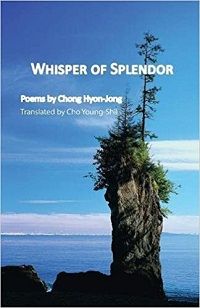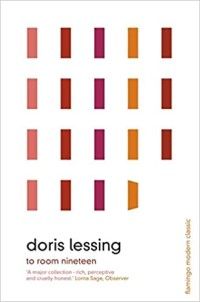Books are the narrative backbone of the drama, and not simply because the young woman, Yoon Ji-ho, is a struggling writer. Ji-ho looks to books as companions, as supportive as her closest friends are. The words that come to life in her, the words that narrate the whole series and welcome us into the folds of her heart and mind, are born from the books she’s read and the ideas they cultivate in her. When she moves in with Nam Se-hee—first because she thought she was moving in with a girl, and finally out of pure desperation from having nowhere else to go—it gives her the opportunity to reflect on the nature of existence, love, and loneliness. But it takes the viewer some time to realize that different works of literature have guided those thoughts. Many of the books and passages referenced are obviously in Korean, without English translations. But I was able to find and read two of the works. I can honestly say that visiting these two literary works transformed my already deep feelings for the series into a heartbreaking understanding. Reading this story helped me understand Ji-ho so much more. Her ideas of love, relationships, her ability to subvert the norm and walk away from what everyone expects is the right decision, and find a way to redefine her work, her profession, and her love life—it’s not all just a generational difference or a way to make her stand out. Ji-ho is actively motivated by this story, which she rereads often, not to succumb to the logical choices. She is empowered by this tale to find a way into Se-hee’s room 19, which she perceives as his heart. It’s this room that figuratively takes shape for Ji-ho when she moves in with Se-Hee. It’s no coincidence that they even discuss this story when he’s entered her room for the first time. The symbolic act of allowing him in, letting him discover the deeper sides of herself, is much more powerful after you’ve read this story. The fact that she doesn’t tell him how the story ends (you can probably guess, and it’s fairly obvious from the beginning) reflects that she wants to rewrite the story on her own terms. They themselves have entered into an intellectual, “logical” marriage, in order to abide by the same kinds of societal expectations, but Ji-ho is adamant in her belief that honest access to each other’s “room” is the answer to making love work, not filling roles dutifully. In the meantime though, she has to be seen as “a crazy bitch [rather] than a pathetic wench,” in the words of her friend Su-Ji, describing why the wife never tells her husband the truth about her hotel room. Ji-ho has no problem being the crazy one, considering her sojourn in the night that brings her to Se-hee’s doorstep and catalyzes their eventual marriage-on-paper. But what’s crazier than taking the ultimate gamble on love, and walking away when everything seems to be fitting correctly? Reading “To Room Nineteen” explains Ji-ho so perfectly, it should be required reading alongside watching the show. The most valuable takeaway from watching Because This Is My First Life has of course been the discovery of these two literary works, and the writers behind them. Chong’s poetry has been a salve in particular, during the uncertain times we’ve been thrust into of late. And Lessing’s stories are revelatory, able to lift the veil off of truths we sometimes refuse to acknowledge (like the spaces we need or the spaces we create, in opposition to the restraints and misguided directions of society). If you’re looking for a ruminative escape, you would do well to watch Because This Is My First Life and read these works right after.

